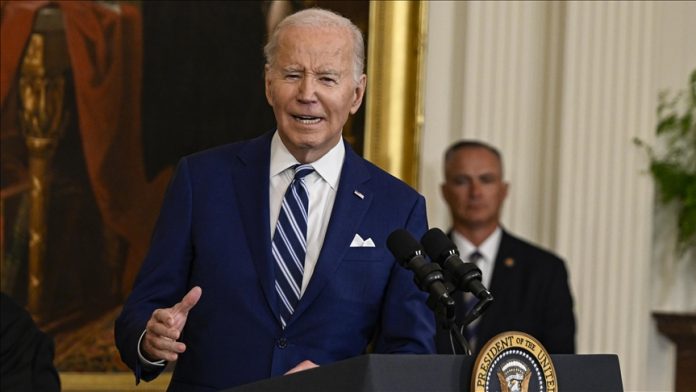Biden administration officials see the hostage deal as proof that their strategy toward the war between Israel and Hamas is working – Politico says.
A four- to five-day pause will allow released hostages to transfer safely and facilitate the delivery of vital aid to suffering Palestinians in Gaza. In the face of so much destruction and chaos, the hostage deal finalised late Tuesday may prove to be a rare bright spot in dark times.
On the other hand, there is no obvious victory as 200 hostages still remain in Hamas hands, leaving it unseemly to celebrate any triumph after Hamas killed 1,200 people on 7 October, which led Israel to respond forcefully with a military campaign which has killed more than 13,000 people, according to some U.S. administration officials.
At the same time, demands by progressive Democrats for a cease-fire and an end to support for Israel’s response have gone unheeded by the White House, as Biden reiterates that the only way to make meaningful humanitarian progress is a hostage deal that would calm passions and temporarily halt the dropping of bombs on the enclave.
The deal might fall apart, according to U.S. officials, as nothing is final until the hostages are brought home and the military confrontations cease.
One of the former U.S. official stated that hostage negotiations were at times complicated by the wide range of parties involved. Another difficulty was the large number of hostages, diverse in nationality and age, in some cases in need of urgent medical attention.
“Hostage negotiations are always challenging,” the former official said, adding that “this one has been very complex.”
The Biden administration insists that Israel has a duty to defend itself but must minimise harm to civilians, yet in recent weeks the U.S. has ensured that 100 lorries of humanitarian aid arrive in Gaza from Egypt every day.
But the White House feared the unintended consequences of the pause as it would allow journalists greater access to Gaza and an opportunity to further highlight the destruction there and change public opinion about Israel.
According to experts, Israel is unlikely to ramp up its military operation in Gaza after the temporary pause ends.
On the other hand, Israeli officials have vowed to continue the offensive until Hamas is destroyed.
There is no indication on the Israeli side that they think this actually changes what they need to do on the military side, said Ivo Daalder, president of the Chicago Council on Global Affairs.
The White House remains “deeply, deeply worried” about Israel’s long-term strategy and what the next phase of the war might look like, so the U.S. should increase pressure on Netanyahu in the next few days to think through its approach.
This begs the question: why was Israel’s support at the time of the launch of the operation needed if there is a necessity to end hostilities now?
“The administration has judged that supporting Israel Post-Oct.7 was a necessary ingredient of having influence on Israel,” said Daalder. “It doesn’t mean that influence has been total… but had they not done that, they would’ve had no influence. And in some ways that remains very much the focus of their strategy.”
Biden is resisting calls from his own party to support a ceasefire and condition military aid to Israel despite losing voters in the 2024 election.
“If there are no bombings for five days, the goal would be to turn that temporary respite into a longer-lasting cessation,” but that is only possible if Biden is in favour and some of the circumstances of the deal come together.
